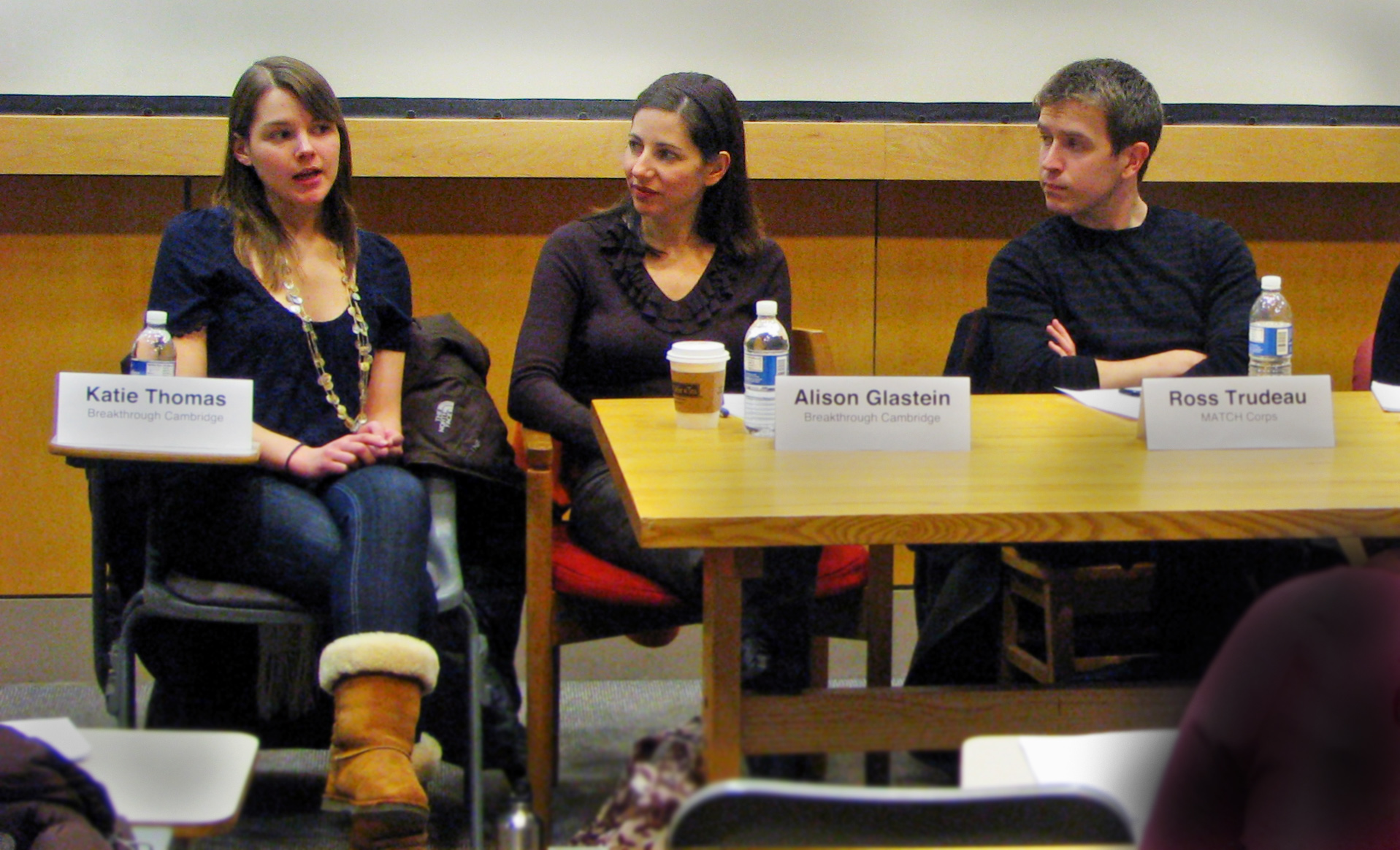MIT Alumni—Can You Help?
-
-
slice.mit.edu
- 1
Filed Under
Recommended

For many students, the days following graduation are marked with sleepiness, sweet pride over their hard-earned degrees, and little lumps in their throats that signal the start of job hunting season. What's a student to do? The Public Service Center has answers.
At an IAP event yesterday, the PSC convened a panel of folks from nearby teaching programs who offer recent (and some not-so-recent) grads paid opportunities to teach and tutor area students after graduation. Four different organizations were represented: Breakthrough Cambridge, Match Corps*, Teach for America*, and the Massachusetts Promise Fellowship*. Each occupies its own niche in the service-teaching landscape, but there were a few surprising commonalities that they shared.
*These programs are open to recent grads and alumni
5 skills you'll hone in an immersive teaching/tutoring job:1. Leadership Management: The Teach for America representative stressed this skill over and over again, saying that when you walk into a room of rowdy high school kids, you have to learn quickly how to get control of the classroom—and keep it.
2. Communication: "If you think it's easy to waltz into a room and start chatting with a 16-year-old Dominican girl from Dorchester, that's fine," said the Match Corps representative. "But most people have to learn a lot about communication on the job. It's essential."
3. Motivation: One of my best friends completed the Match Corps program, which involved tutoring a handful of students throughout the academic year, sleeping on the fifth floor of the school that he worked in, and constantly racking his brain over how to keep his kids motivated and engaged with their school work. I remember him saying that with one student, he would tutor "in character," using a different voice and persona to keep things interesting. He took his kids out to dinner, coached them day and night, and learned a ton about how to keep his students--and himself--motivated.
4. Responsibility: The Mass. Promise Foundation rep pointed out that, compared to most entry level positions, the sort of responsibilities given to you as a teaching/tutoring fellow in any of these programs is unparalleled. The academic futures of your students rest (albeit not entirely) in your hands. You have lesson plans to craft, classes to teach, and tutoring sessions to enliven.
5. Budgeting: Some students see the low-end salaries and stipends offered by these programs as drawbacks. But a business professor at Northeastern told his students that whenever he spots an applicant with something like Teach for America on his/her resume, he automatically pulls them to the top of his list and phones them first. He says that living on small stipends forces students to take money management seriously.
(It should also be noted that, beyond already having limited funds to provide services, some of these programs provide small stipends for ideological reasons: When Teach for America began under the Clinton Administration, the creators wanted students to be fully immersed in their students low-income, poverty-line lives. That meant that instead of thriving on big chunks of stipend cash, teaching fellows would get a real taste of what life was like by living on incomes just above the poverty line.)
No matter how you dice it, the skills one can learn in these programs are valuable and applicable to any career. And if building your skill set isn't the biggest motivator, consider these stats, mentioned by Abbey Prior, the Teach for America rep:
Nearly 50% of public school students in the U.S. are taught math and science by teachers who have never even minored in those fields.MIT alumni and soon-to-be grads—can you help?







Comments
Aaron
Wed, 11/03/2010 3:28pm
Classroom control is a skill...and one that must be learned. And it's not that easy. Personally, I'd recommend some social psychology training (specifically Cialdinis book "Influence:Science and Practice") and a primer on how to build rapport. If you know what makes them tick and are friendly, that will really help.